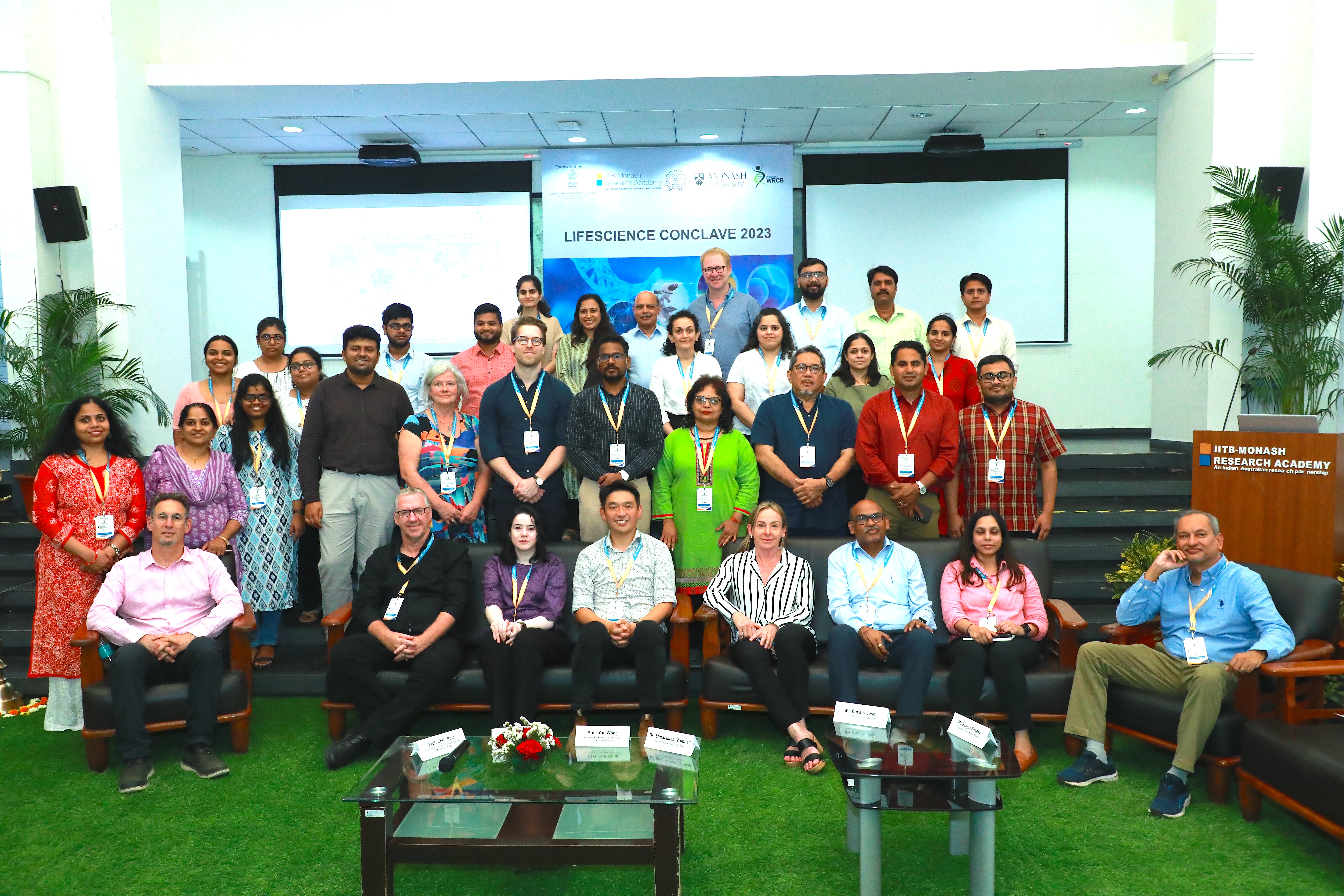
We are delighted to announce that IITB-Monash Research Academy hosted a Lifesciences Conclave on 4th, 5th, and 6th December 2023. The event brought together esteemed researchers, scholars, and industry experts to discuss cutting-edge developments in the field of life sciences.
The Lifesciences Conclave, jointly organized by the Academy with the Wadhwani Research Center for Bioengineering , showcased a diverse range of research presentations, panel discussions, and interactive sessions. The three-day event provided a platform for collaborative exchange, fostering meaningful discussions on the latest advancements, challenges, and opportunities within the realm of life sciences.
The research themes for the conclave were - Infectious disease and antimicrobial resistance (AMR), Disease modelling and therapeutic screening, Computational Biology, Food as Medicine, Digital Health, Pharma & Pharmacology. Highlights of the Conclave included keynote addresses by renowned experts, insightful panel discussions addressing key industry trends, and the presentation of groundbreaking research findings by participants from both institutions and industry experts. The Conclave attendees included 20 industry participants in addition to professors from IIT Bombay, and Monash University’s Australian and Malaysian campuses.
The objective of the conclave was to facilitate knowledge dissemination in the public forum and a workshop to create new research topics in discussion which will shape our grand challenges aligned PhD research partnership with industry. The structure of this year's conclave differed from last year’s. This year, presentations have been pre-circulated so that the session can focus on the panel discussion. Following the panel discussion, a further closed-room session was held with industry partners to curate topics. It is expected that 5-10 topics focusing on translatability are identified from each of the nine sessions.

One of the sessions delved into emerging areas and developments in the treatment of infectious diseases through microfluidics platforms, addressing AMR concerns, and exploring research avenues of interest to the larger life sciences community. Another one highlighted concerns related to pharmaceuticals and the significance of nutraceuticals. The panel emphasized the need for micronutrient addition in diets amidst lifestyle changes. Busting myths around protein intake and dietary fibers added great value to the discussion.
There was a panel which explored critical concerns related to drug design advances in neurodegenerative disorders, access to emerging disease modeling technologies, and the innovative use of gene-editing. It showcased diverse specializations in developmental biology, disease modeling, and therapeutic drug design. Another delved into the vision for benchmarks in computational biology, exploring the role of generative AI and Large Language Models (LLM) in genomic science, and discussing pertinent limitations concerning access and reliability.There were profound discussions on concerns related to tissue slicing, in-vitro and in-vivo disease modeling, and considerations for developing disease models in another panel.
There was an engaging discussion, moderated by Professor Chris Bain which ventured into capacity development, interdisciplinary communication challenges, data credibility and validation, privacy concerns, and research-related collaborations in the realm of digital health. One of the last sessions explored concerns related to pharmacokinetic dynamics and modeling for novel drugs, in-vivo stability of fusion peptides, multipronged strategies for mRNA therapeutics, and pharmacology challenges.
This event not only facilitated knowledge sharing but also strengthened the collaborative ties between IITB, Monash University (Australia), Monash University (Malaysia) and the industry participants, setting the stage for future research initiatives and partnerships. As we reflect on the discussions and insights shared during the conclave, it is evident that the future of lifesciences is bright. The research presented has the potential to shape the way we understand and address crucial issues impacting our world.
We extend our heartfelt gratitude to all those who contributed to the success of this event. The enthusiasm and commitment towards advancing the frontiers of knowledge in life sciences have truly made the Lifesciences Conclave a remarkable and memorable experience.
Designed and Developed By SRV Media Pvt. Ltd.
© Copyright 2025 by IITB-Monash Research Academy